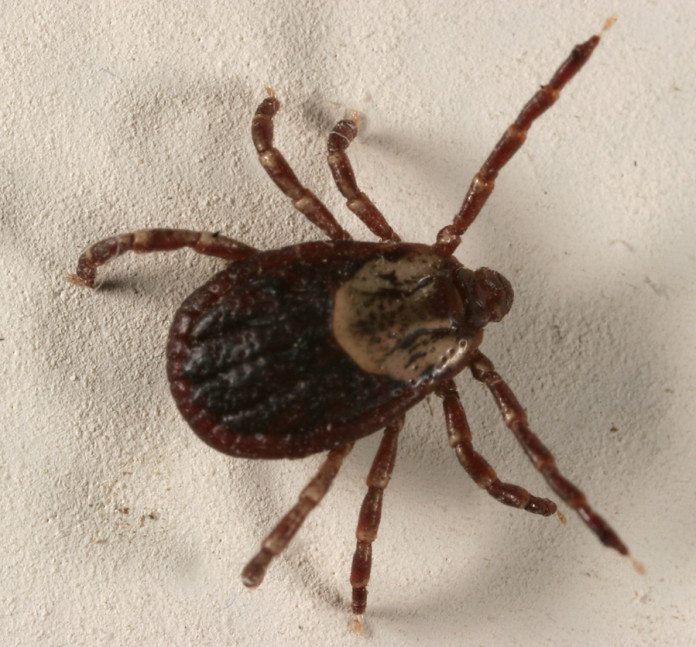Orphan Animal Season - What to do?
Orphan Animal Season - What you can do to help.
By Emily Tindall - SVN
With spring in full swing, baby animals are going to be a frequent sight to the general public. But what should you do if you find one?
Well, the most common piece of advice I can give you is to leave it alone. Most of the baby animals I’ve had to rear have been brought to me with good intentions when what they really needed was to just stay where they were. Obviously, each baby animal is different and some will need to be taken in but first you need to make sure it definitely is orphaned.
Now, there are far too many animals out there for me to give you a run down for every single one, so here are a few of the basics.
- Birds – If they have no/a few feathers and aren’t very mobile then yes! They need help. If they’re fully feathered and seemingly unharmed, they do not. Most baby birds will spend a few days hopping around the ground and low branches before learning to fly in order to get used to their surroundings.
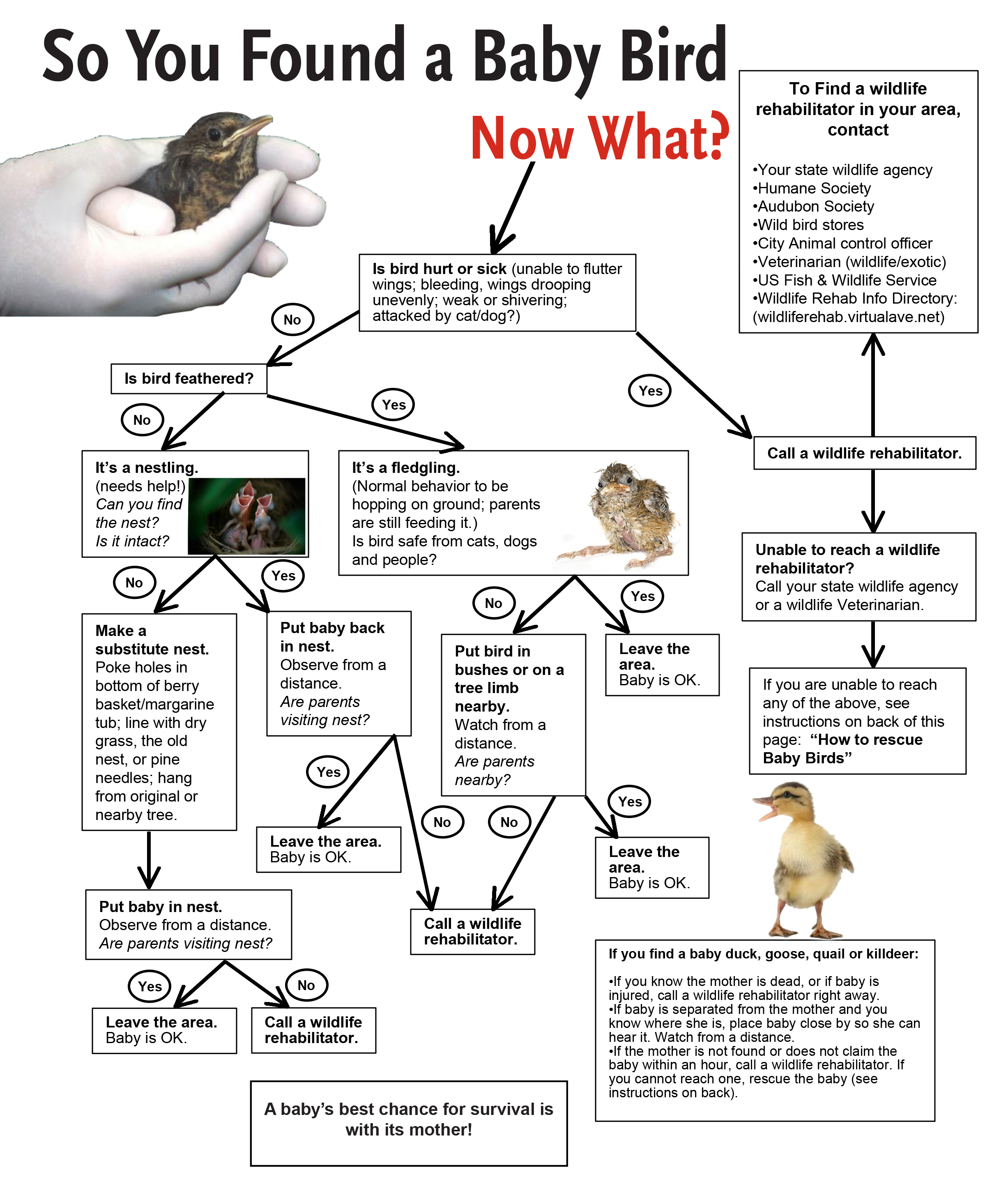
- Squirrels – Observe from a distance for a while. Do the parents come back? Parents can sometimes leave the babies in an area they deem safe while they move their other young to the new nest. If the baby is left alone for longer than an hour take it in, get it warm and call your nearest vet/local wildlife centre. But make sure to go away and come back within that hour as it could be the parents are waiting for you to leave before they come and get their baby.
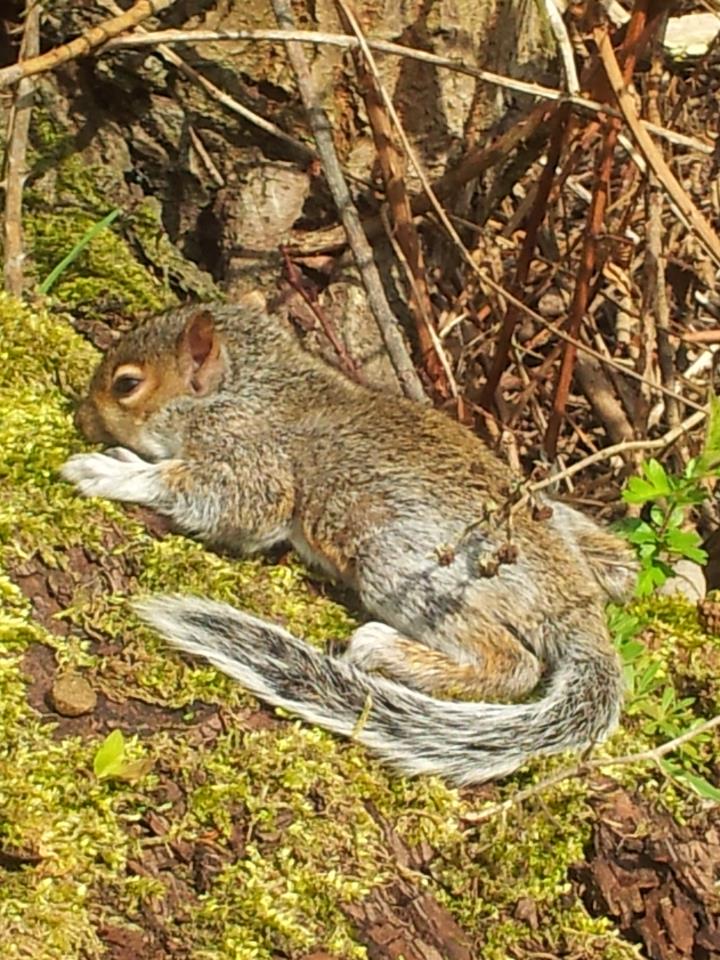
- Mice – If the baby mouse is running around and you’ve just found it in your garden, it’s fine. Baby mice will often leave the nest sporadically throughout the day with their parents upon reaching a certain age to help them get used to the area. If the mouse still has its eyes closed/partially closed, it needs help.
- Rabbits – Leave it! Unless visibly harmed, Do Not Touch. Rabbit burrows tend to be in a relatively open area. Don’t disturb the nest, don’t touch the babies, just leave and come back to check on them later. Rabbits only feed their young twice a day for short amounts of time in order to not draw too much attention to their young. If the nest is flooded or there are dead baby rabbits in there, remove the others and contact your local vet or wildlife rehabilitation centre. If the baby rabbit is out in the field, eyes open and happily moving around – leave it. Rabbits stay close to their burrow for the first few weeks of exploring so they can get used to foraging and the area.
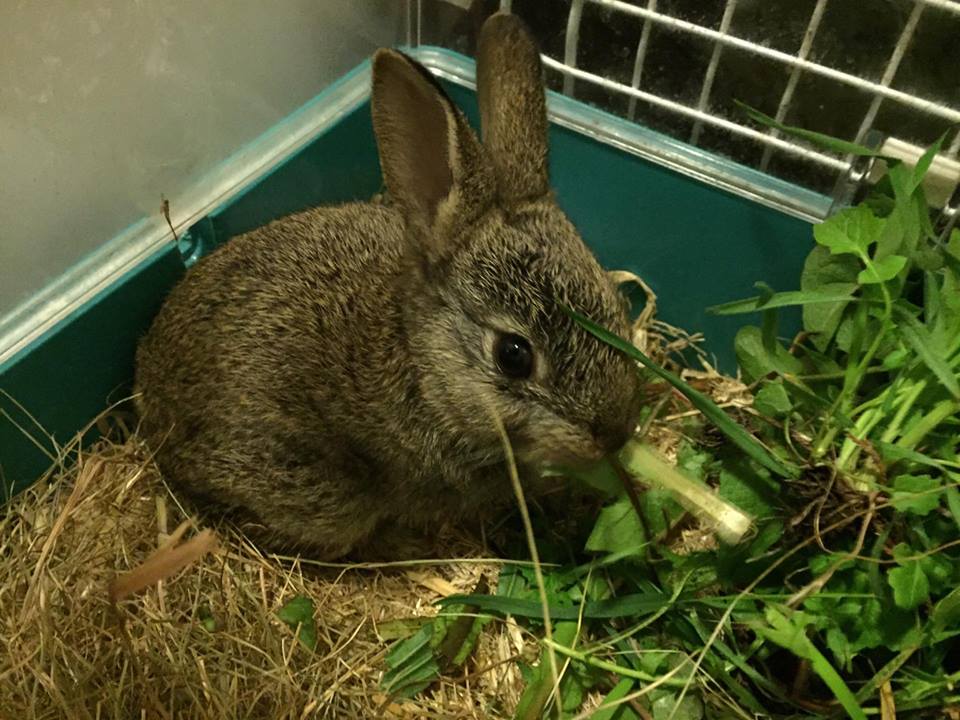
- Foxes – If the cub’s eyes are open and it is unharmed, leave it alone and monitor it over the next 24 hours. Vixens can only carry one baby at a time so, more often than not, the baby is just waiting for its mothers return. If the cub’s eyes are closed, monitor for a few hours and if it still hasn’t been collected or if it is injured, call your local vet or wildlife centre for advice. Please be aware that new born fox cubs can also look a lot like puppies.
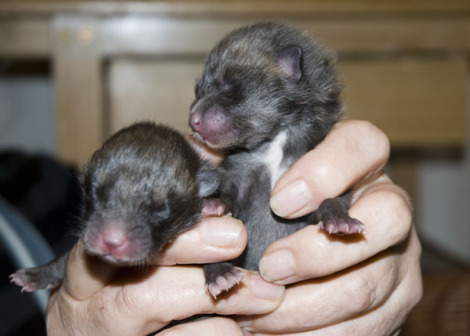
- Hedgehogs – Any hedgehog that is out during the day needs help. Hedgehogs are nocturnal animals who only venture out in the day if starving or seriously ill. If you find a baby hedgehog with its eyes closed, monitor it for a few hours. If it still hasn’t been collected, take it in and keep it in a warm, quiet environment until you can contact a local vet or wildlife rehabilitation centre. Baby hedgehogs with their eyes open that are out at night time can be watched but left alone. They are simply venturing out and will return to their nest. Unless visibly injured, you know their mother is injured/dead/unable to return or they’re out in the day time, please do not intervene.
- Bats – Do not try to raise. Baby bats should be watched from a distance for their mother returning to them. If it has reached day time and it is still alone do not touch it. Call your local vet, wildlife rehabilitation centre or bat conservation centre. They will advise you what to do or come and collect the bat.
What should I feed them while they are with me?
Baby animals have different needs depending on the species and age of the animal. Your best bet would be to search the internet for suggestions depending what you have in your care.
For example, baby wood pigeons need a diet of small peas, sweetcorn, bread crumbs, suet, etc, whereas baby blackbirds need a diet of egg (smushed up boiled egg) and suet until old enough to eat seed. Baby woodpeckers mostly feed on ants and other small insects.
Depending on the age of the hedgehog will depend on what that eats – Lactol as a milk substitute (or goats milk on a short term basis) is best for very young hoglets until they can move onto solid food such as warm chicken, meat cat food (not fish), cat biscuits or hedgehog food. Please do not feed them milk and bread as this can cause severe gastrointestinal problems.
Baby rabbits should be fed greens which are suitable for rabbits – dandelions, clover, grass, plantain etc. If the rabbit is still bottle feeding then a suitable substitute would have to be bought and made up fresh each time.
But in cases of feeding, the internet or wildlife centres are your best friends. If possible, check multiple sources to make sure you have read the correct advice and aren’t going to be doing further harm.
What should I do with it while it is in my care?
Short answer: leave it alone.
Wildlife is incredibly susceptible to shock while in human care, especially baby wild animals that are away from both their parents and their home environment. The best thing you can do for them is put them in a secure, warm, dark and quiet area where they won’t be disturbed and leave them alone to calm down. The only contact you should have with any wild animal is during feeding in order to keep the animal relatively wild and not allow it to get too accustomed to human interaction.
Obviously in cases of injury or frequent medication, this can be slightly relaxed while treatment takes place.
Who can I call?
- Derbyshire Fox Rescue:
North Wingfield
Tel: 07941 591120
Website: http://www.derbyfoxes.org.uk/
- Burton Wildlife Rescue & Animal Centre:
Burton on Trent
Tel: 07780742748
Website: http://www.freewebs.com/wildliferescueburton/
- Snuffle Lodge Hedgehog Rescue:
Bulwell, Nottingham 0758 858 5991
Website : http://www.snufflelodge.org.uk
Facebook : http://www.facebook.com/snufflelodge
- Nottingham Animal Accident Rescue Unit: **Rescues Only**
0115 932 1555
Website : http://www.animalaccident.org.uk/
- St Tiggywinkles:
Tiggywinkles
Aston Road
Haddenham
Aylesbury
Buckinghamshire
HP17 8AF
01844 292292
http://www.sttiggywinkles.org.uk/
- Bat Conservation Trust:
http://www.bats.org.uk/
0345 1300 228
You can easily search on the internet for your closest animal rescue or your closest vet.





